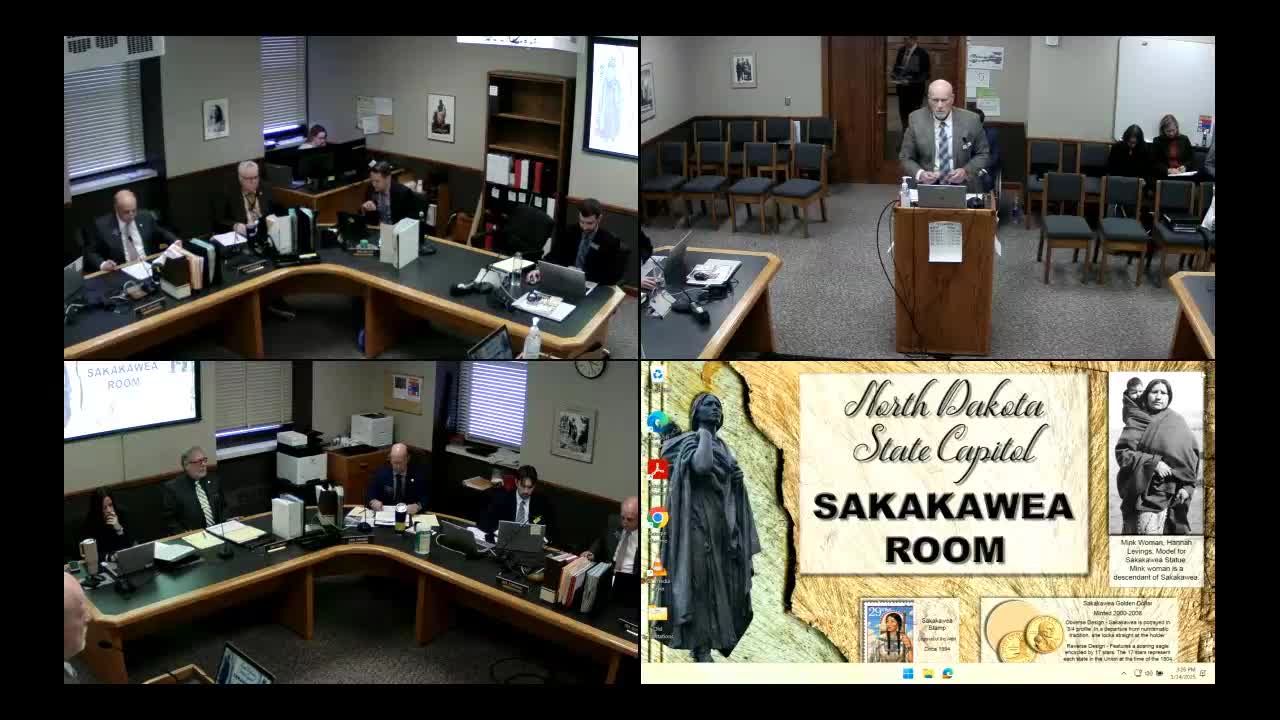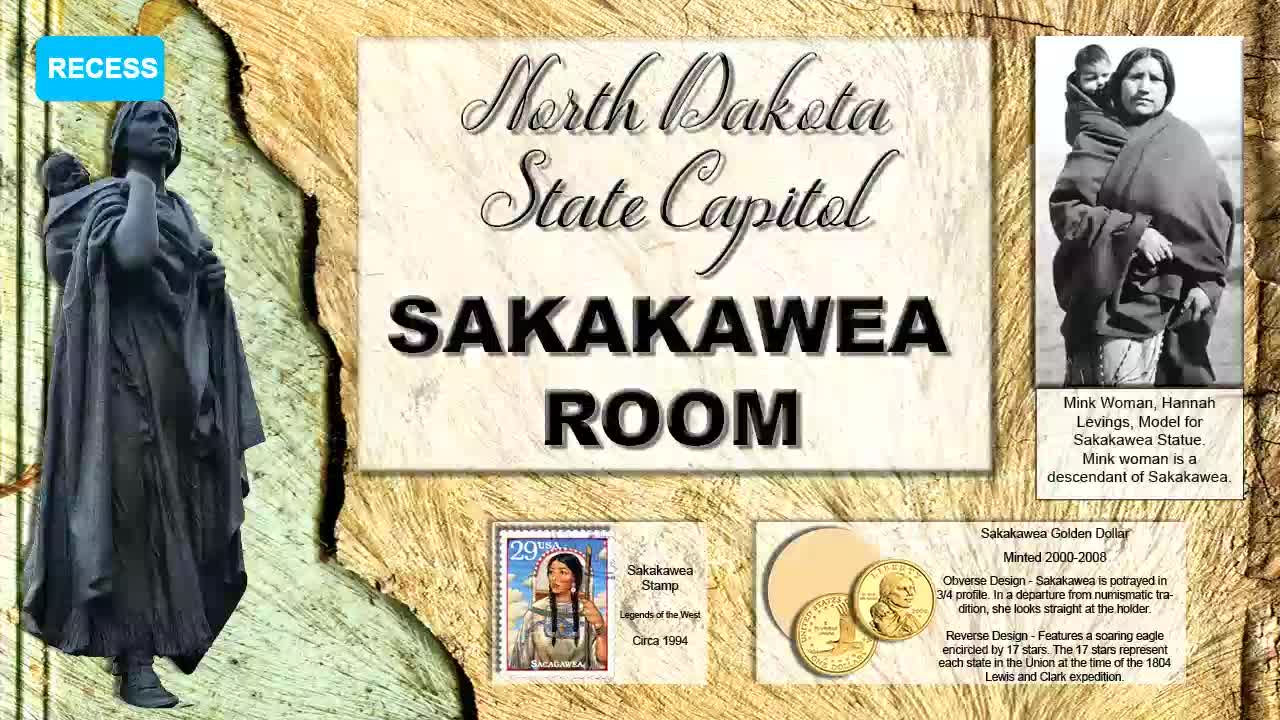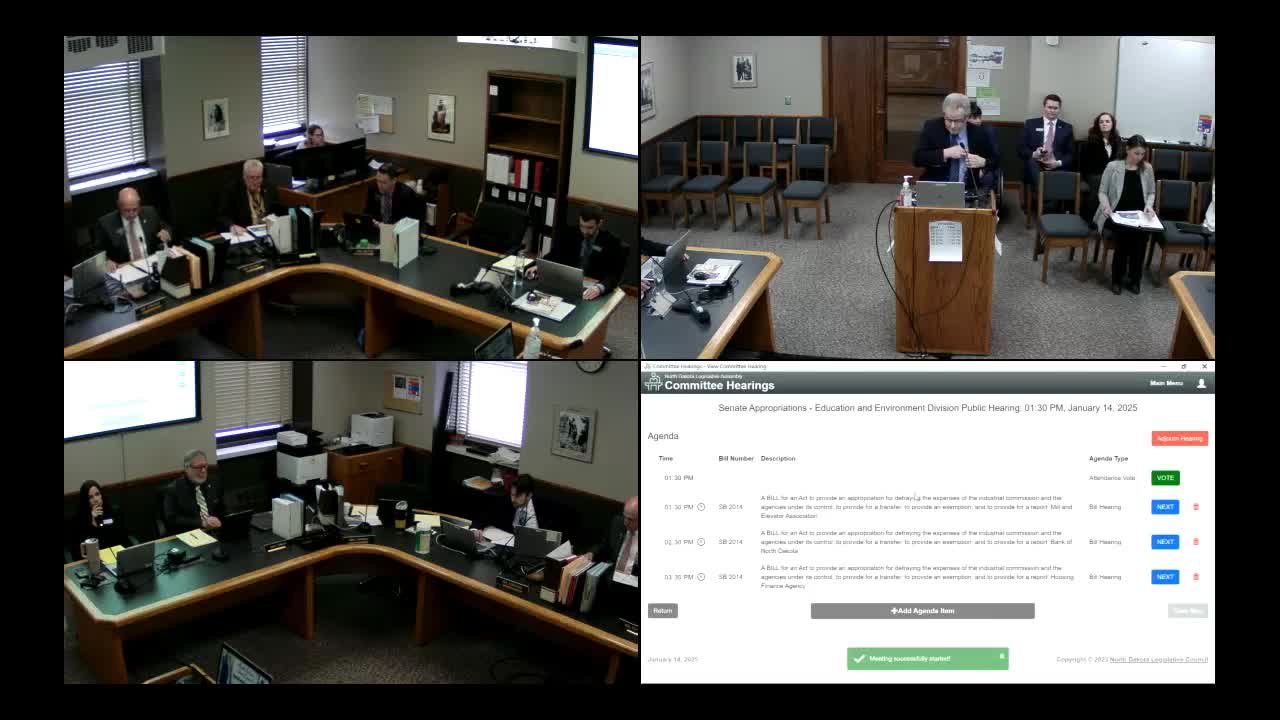Article not found
This article is no longer available. But don't worry—we've gathered other articles that discuss the same topic.

North Dakota Housing Finance Agency requests $40M for Housing Incentive Fund, transfer of homeless grant and five staff additions

Bank of North Dakota lays out mission, new capital policy and recommends $212M dividend for 2025–27

